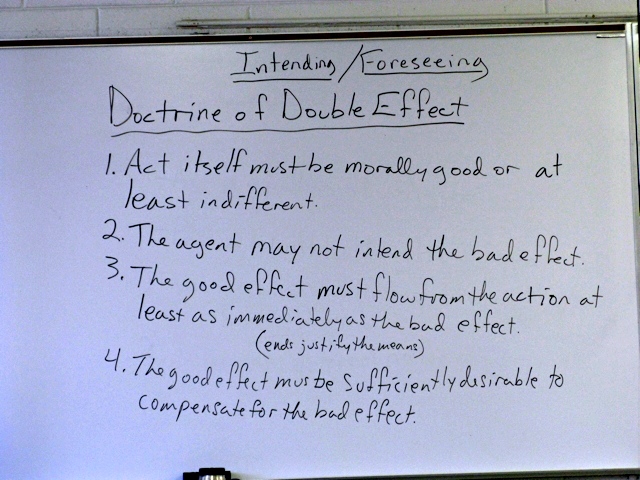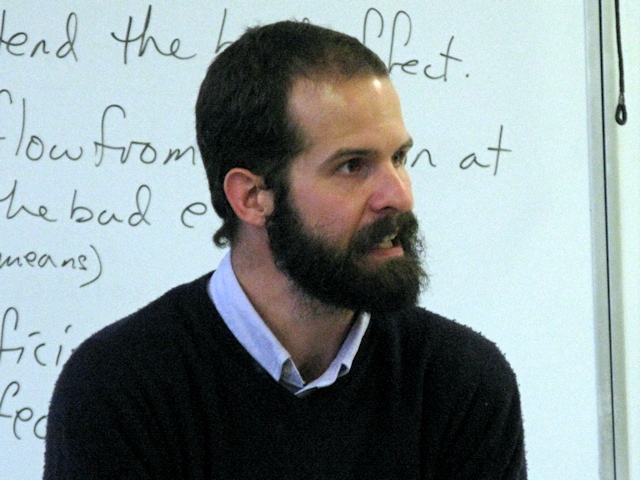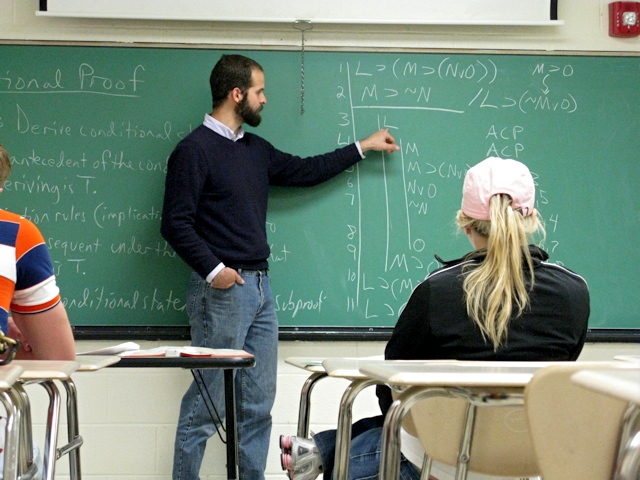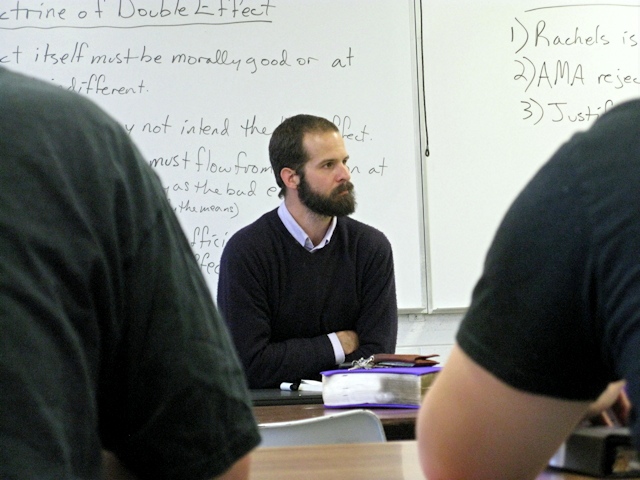In The Weight of Glory and Other Addresses, C. S. Lewis wrote,
Good philosophy must exist, if for no other reason,
because bad philosophy needs to be answered.
I spent the morning today attending three classes taught by (son) Daniel at Midlands Technical College, a multi-campus college in Columbia, SC. He has taught a heavy load there the last three years while pursuing his Ph.D in philosophy at the University of South Carolina (now in dissertation stage).
In 12 years of undergrad and graduate school, I managed to avoid all but two philosophy courses (I didn't "get" philosophy, I say to my shame), both at an introductory level. I confess to not having had a good practical sense for the need and place of "philosophy" outside the ivory towers of academia. But the Lewis quote above, cited by Dr. Normal Geisler in a class I attended at my church recently, was a light-bulb moment for me. And my perspective was greatly expanded from sitting in on Daniel's three classes this morning (nearly 4.5 hours of instruction).
The first class was Introduction to Logic—like math without numbers. It was all Greek to me, but I was immediately impressed with the need for the mind to be trained to think in logical progressions. Computer programmers think this way, as do ethicists when navigating the foggy terrain of either/or landscapes. In truth, all of us think logically (sometimes), but at a first-grade level compared to the rigor of what is possible. Learning to test and prove arguments logically is like learning a foreign language, yet once the language is learned I have a feeling (and Daniel attests) it opens a door into a dynamic reality that casts a different light on the hardest questions of human existence.
In the Logic classroom:
The second class was Introduction to Philosophy, today's discussion being an analysis of two contemporary and opposing points of view on personal and property rights from the perspective of the individual and society. More than once in this lecture I saw places where the previous hour's lecture on logic could be used to test theories:
The third class was Contemporary Moral Problems, today's topic being euthanasia (next class: capital punishment). Again, two opposing viewpoints from the writings of two contemporary philosophers examining the relationship between intent and result in actions, using euthanasia as the platform:
This lecture involved an interesting presentation of Thomas Aquinas' "Doctrine of Double Effect"—the relationship between results (harm) that are intended versus results that are foreseen (collateral harm) but not intended. Aquinas' doctrine forms the basis of the modern "just war" theory of warfare, debated extensively in the post-911 days prior to the U.S.'s invasion of Iraq. I recall the debate re: "just war" from those days, but this was a clear outline of the basis of the argument. (Note: point three is a guard against "the ends justifying the means," not a support for it -- in case you happen to read that closely.)

These three classes in succession were helpful for me as they progressed from logic to theory to practical life-and-death issues. That order reflected the random choice of the college scheduler, but I found in the three a helpful way to see how the seeming abstract world of philosophy ultimately has its outworking in real-life issues. Often, people in high places responsible for making weighty decisions that effect a nation's populace don't have the training to apply philosophical reasoning to problems, so they rely on "philosophers" and the academy to shed light in dark corners. Having sat through these classes today, I wish I could go back and redeem my largely profligate college years and invest my mind in more rigorous pursuits than were required as, e.g., the social chairman of my college fraternity. 'Yo boy.

All parents are happy when their children find callings at which they are fruitful and by which they make meaningful contributions. I wish I lived close enough (and/or their various venues allowed) to spend a half day with Daniel's brothers and sisters as they hammer out their own futures: Stephen and his company in California, David in library science in Philly, Lizzie as a retail manager in Connecticut, and Anna as an aspiring banker at Wells-Fargo in Charlotte.



















